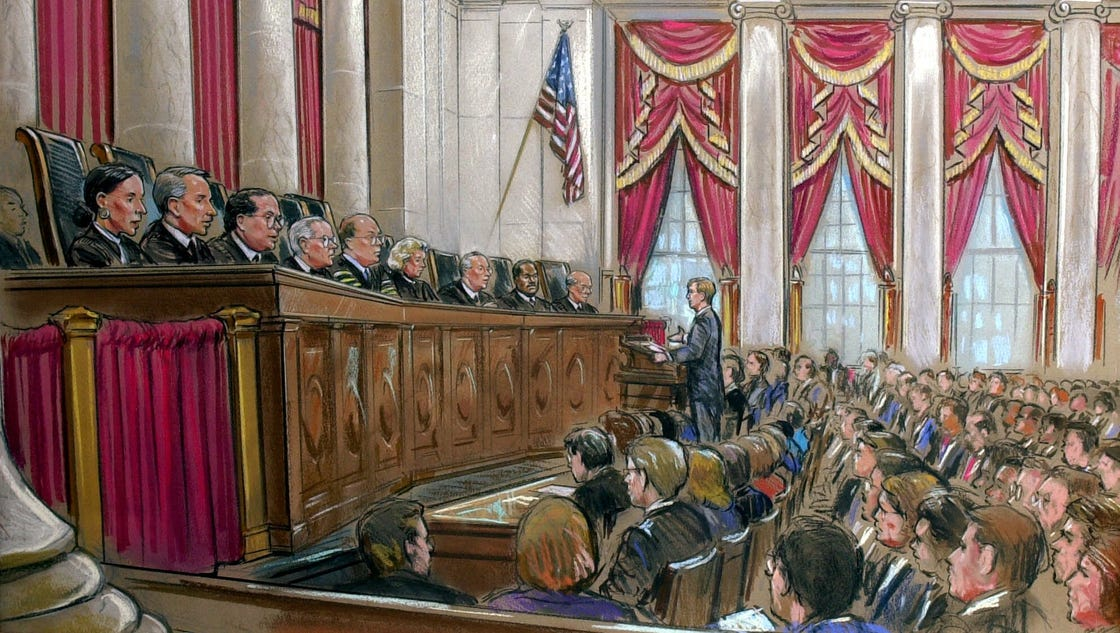The Supreme Court of the United States (also known as SCOTUS) is the highest federal court in the country, as well as the head of the judicial branch of U.S. government. The Supreme Court has the power to check actions of the other two branches of government, as well as have ultimate jurisdiction over all laws within the U.S. The Supreme Court is currently made up of nine justices.
After reading the History Channel article, I learned that the Supreme Court didn't hear any cases in its first term of service. Instead, the first case they heard was finalized on August 3, 1791with West v. Barnes, a financial dispute between a farmer and a family that he owed debt to. I also learned that the Supreme Court's justices are nominated by the president and the nominees must be accepted or declined by the U.S. Senate. The chief justice is present over trials involving the impeachment of the President of the United States (POTUS).
An important takeaway from the Supreme Court is that it is an organized system written into the United States Constitution that the SCOTUS' primary function is accountable for evaluating the laws of the United States, and determining whether or not they are constitutionally sound. The Supreme Court is the highest court, and they take on some of the most challenging, historic cases that are brought to trial. Some cases that have been decided by the Supreme Court are still talked about today and still play a role in today's society. Texas v. Johnson (1989) is a notable case that ruled that offensive speech (such as burning the U.S. flag) is protected by the First Amendment). Brown v. Board of Education (1954) is another case that is still talked about today that ruled that segregation of races in public schools is unconstitutional. Both of these cases are heavily taught and brought back up even as new cases are brought to the table.
The most surprising fact that I learned about the SCOTUS is that it didn't hear any cases for the first term, and that the first "official" case that they listened to was a financial dispute. I found this surprising, because I had always assumed that the SCOTUS' first real case was something more dramatic and (quite frankly) interesting.
After reading the article, I have a better understanding of the history of the Supreme Court and how it works. To be honest, I hadn't ever had much interest in the Supreme Court, and I didn't know much about it past the basic understandings of it. I feel as if now I have a better understanding of the organization of it and how the system works. I feel as if I now also have a new sense of how fortunate we are as a country to have such an orchestrated judicial system. While I believe that it isn't perfect at times and sometimes doesn't make the best decisions, we are lucky to have a kind of system that is responsible for the laws put into place and how they match up with our Constitution.








No comments:
Post a Comment